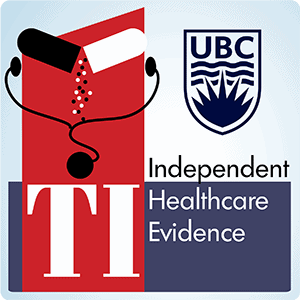
21 Jun 2019 [July 3-4] Network Meta-Analysis Workshop
When: July 3 – 4, 2019, 9:00am to 4:00pm (with 1-hour lunch break)
Where: University of British Columbia, Vancouver, Canada
Registration: Registration is now closed.
Description:
This workshop will start with an introduction to network meta-analysis (NMA) and will include instruction on how to use BUGSnet, a new JAGS-based R package for conducting and reporting NMAs.
Day 1: Introduction and methods using in a systematic review with network meta-analysis
Presenters: Dr Carole Lunny and Aaron Tejani
The day will start with an introduction to network meta-analysis, and how to read and appraise the content of a network meta-analysis. Using a mix of presentations and practical exercises, we will provide an introduction to network meta-analysis, an overview of the three assumptions that should be met for the network meta-analysis to proceed, guidance on the appraisal of systematic reviews with network meta-analysis using the recently developed ROBIS (Risk of Bias in Systematic Reviews) tool, how to appraise the risk of bias of the included randomised controlled trials in the network meta-analysis, and assessment of the certainty of the evidence in a systematic review with network meta-analysis using the Confidence In Network Meta-Analysis (CINeMA) web tool.
Day 2: Statistical analysis with BugsNet
Presenter: Dr Audrey Beliveau
The day will start with an introduction to network meta-analysis. Participants will learn best practices for addressing the statistical components of an NMA and reporting the results, as outlined in the PRISMA, ISPOR-AMPC-NCA and NICE-DSU best practice documents. This will include model choice (various distribution families and link functions, fixed vs random-effects models) and model assessment (leverage plots, DIC), assessment of the assumptions of homogeneity and consistency, and reporting and interpretation of outputs (SUCRA plots, league tables, forest plots). The mathematical descriptions of NMA models will be explained and the Bayesian paradigm will be discussed, including how to assess convergence using traceplots and choose appropriate prior distributions.
Participants will learn how to use BUGSnet, a new JAGS-based R package for conducting and reporting NMAs. Datasets and R code will be provided and participants will be walked through examples to obtain all the necessary outputs, which will be interpreted. This will go into a practice exercise using BUGSnet, where participants will use their knowledge from the workshop to analyse a new dataset on their own, and interpret the outputs. Advanced features of BUGSnet will be presented, namely meta-regression and customization of the BUGS code. Finally, participants will be given the opportunity to bring their own datasets and work in groups to analyse and interpret their own data with the support of the instructor. If time permits, participants will be encouraged to prepare a short Powerpoint to present their results and get feedback from their peers and the instructor.
Requirements: Knowledge of R or JAGS is not a prerequisite for this workshop. Software with installation instructions will be sent prior to the workshop and participants will be expected to have the software ready to use on their laptop on the day of the workshop.
Bios of presenters:
Dr. Audrey Béliveau is an Assistant Professor in the Department of Statistics and Actuarial Science at the University of Waterloo. She completed her PhD in Statistics at Simon Fraser University in 2016 followed by a two-year postdoctoral fellowship at the University of British Columbia. During her postdoctoral studies, she worked on assessing the validity of network meta-analysis methods for analysing disconnected networks of evidence. Some of her work in network meta-analysis was published in the Research Synthesis Methods journal. Dr Béliveau is also an experienced statistical consultant in the Health Technology Assessment industry.
Recently, Dr Béliveau joined forces with Lighthouse Outcomes Inc and Devon Boyne (PhDc) and developed a new Bayesian R package for conducting network meta-analyses, called BUGSnet. BUGSnet was developed to address the need for an all-in-one package to conduct and report network meta-analyses following the standards of quality outlined in the PRISMA, ISPOR-AMPC-NCA and NICE-DSU best practice documents.
Dr. Carole Lunny is a research methodologist with the Cochrane Hypertension Review Group and the Therapeutics Initiative at the University of British Columbia. She specialises in methods for research synthesis and critical appraisal of systematic reviews, randomised controlled trials, and observational studies (cohort, case control). She completed her PhD training at Cochrane Australia at Monash University’s School of Public Health and Preventive Medicine. She has worked in the field of systematic reviewing and meta-analysis for the past 12 years. She is a member of the Cochrane Collaborations Statistical methods group, and the Open Science Taskforce at UBC.
Dr. Aaron M Tejani is a researcher with the Therapeutics Initiative (co-chair of the Education Working Group and the Drug Assessment Working Group), an editor with the Cochrane Hypertension group, a Clinical Assistant Professor with the Faculty of Pharmaceutical Sciences (University of British Columbia), and Medication Use Evaluation Pharmacist with Lower Mainland Pharmacy Services (Vancouver, BC). He completed his BSc(Pharm) at UBC (Vancouver) and Doctor of Pharmacy degree at Creighton University (Omaha, Nebraska). He currently serves as a peer reviewer for several biomedical journals. Dr. Tejani has published scientific papers in peer-reviewed journals (including authoring 11 Cochrane systematic reviews) and presented to healthcare professional groups at local, national, and international conferences. He is particularly interested in teaching healthcare professionals how to critically appraise research publications and systematic reviews on medical interventions. He is the lead author of a number of Therapeutics Letters.
This workshop was organized by the UBC Therapeutics Initiative (Cochrane Hypertension Group) in collaboration with the UBC Department of Statistics.





No Comments